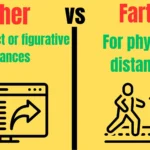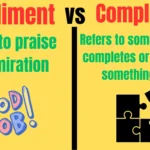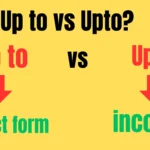In the vast realm of the English language, certain word pairs often trip us up. “Supposably” and “supposedly” are two such words that, despite their similar appearances, have distinct meanings and usages.
This blog post aims to unravel the mystery behind these commonly confused words, providing you with a clear understanding and practical knowledge on how to use them correctly.
Introduction to Commonly Confused Words
Language is a powerful tool, but it’s easy to stumble over words that look or sound similar. This confusion can lead to miscommunication and misunderstandings.
Among the myriad of commonly confused words, “supposably” and “supposedly” often find themselves at the center of debate. Understanding the difference between these two words not only improves your vocabulary but also enhances your overall communication skills.
Why Do We Confuse Certain Words?
Words that share similar sounds or spellings can be particularly tricky. The brain often processes familiar patterns, leading to confusion when encountering words that are almost identical.
This is why it’s essential to delve into the origins and proper contexts of these words.
The Importance of Understanding
Knowing the difference between “supposably” and “supposedly” can make your speech and writing more precise. It helps in conveying the right message, avoiding misunderstandings, and sounding more educated and articulate.
Overview of Supposably and Supposedly
Before diving deep, let’s quickly define these words:
- Supposably: Capable of being supposed; conceivable.
- Supposedly: According to what is generally assumed or believed.
The Origin and Historical Usage of Supposably and Supposedly
Understanding the roots of these words can provide insight into their meanings and how they’ve evolved over time.
Supposably: Etymology and Initial Usage
The word “supposably” traces back to the late 1600s. Derived from the verb “suppose,” it was initially used to mean something that could be supposed or conceived. However, its usage has dwindled over the centuries.
Supposedly: Etymology and Initial Usage
“Supposedly” also stems from the verb “suppose,” emerging in the English language around the early 1600s. It was used to indicate something that is assumed or believed, often without firm evidence.
Historical Context
Both words have rich histories, but “supposedly” has remained more prevalent in modern usage, while “supposably” has become less common.
Supposably’s Journey from the 1700s to Modern Recognition
The journey of “supposably” is an interesting one, marked by shifts in popularity and recognition.
Early Usage: Documented Examples from the 1700s
In the 1700s, “supposably” was used in literary texts to describe something conceivable or imaginable. For instance, in philosophical writings, it often appeared in discussions about hypothetical situations.
Evolution: Changes in Meaning and Usage Over Centuries
Over the centuries, “supposably” has seen fluctuations in usage. It became less common as “supposedly” gained prominence, but it never entirely disappeared from the lexicon.
Modern Recognition: Current Acceptance and Understanding
Today, “supposably” is recognized but often considered archaic or less standard. It’s still valid but less frequently used in everyday language.
Chronicles of Supposedly: Beyond Just Allegations
“Supposedly” has a more consistent history, maintaining its relevance through the years.
Initial Usage: Historical Context and First Appearances
“Supposedly” appeared in the early 1600s and quickly found its place in English, used to describe actions or events that are assumed to be true.
Literary References: Notable Uses in Literature and Media
Authors like Charles Dickens and Jane Austen used “supposedly” in their works, often to depict characters’ assumptions or societal beliefs.
Modern Usage: How It’s Used Today in Various Contexts
Today, “supposedly” is commonly used in both written and spoken English. It often introduces statements that are believed to be true but are not verified.
Defining Supposedly in Everyday Language
Understanding “supposedly” in everyday contexts can help you use it more accurately.
Common Definition: Standard Dictionary Definition
According to Merriam-Webster, “supposedly” means “according to what is generally assumed or believed.”
Nuances: Subtleties and Variations in Meaning
“Supposedly” can carry a hint of skepticism, suggesting that the speaker doubts the truth of the statement.
Examples: Everyday Sentences Using “Supposedly”
- “Supposedly, the meeting starts at 10 AM.”
- “She is supposedly the best chef in town.”
Understanding the Correct Context for Supposably
Knowing when to use “supposably” can prevent awkward mistakes in communication.
Common Definition: Standard Dictionary Definition
Merriam-Webster defines “supposably” as “capable of being supposed; conceivable.”
Appropriate Contexts: Situations Where “Supposably” Is Correctly Used
“Supposably” fits when describing something that can be imagined or thought of as possible.
Examples: Everyday Sentences Using “Supposably”
- “This plan is supposably feasible.”
- “Supposably, he could arrive by midnight.”
The Realm of Possibility: Pinning Down Supposably
Understanding the conceptual difference between “supposably” and “supposedly” is crucial.
Concept of Possibility: How “Supposably” Relates to Possibility
“Supposably” implies that something can be supposed or considered as possible, emphasizing the capacity for something to be imagined.
Contextual Analysis: Detailed Look at Correct Contexts
Using “supposably” correctly often involves scenarios where you’re discussing theoretical or conceivable situations.
Examples: Clear, Real-world Examples
- Correct: “The plan is supposably within our budget.”
- Incorrect: “The event is supposably happening tomorrow.” (Here, “supposedly” is correct)
Examining Real-world Examples of Supposably in Action
Analyzing real-world examples helps solidify your understanding of “supposably.”
Literary References: Instances in Books and Articles
While less common, “supposably” does appear in literature, often in older texts discussing philosophical or hypothetical concepts.
Media Usage: How It Appears in Movies, TV Shows, etc.
In modern media, “supposably” is rarely used, but when it appears, it typically highlights the theoretical nature of a statement.
Analysis: Breakdown of Correct and Incorrect Usages
By examining sentences where “supposably” and “supposedly” are used, you can better grasp their correct contexts.
How to Distinguish Between Supposedly and Supposably
Knowing the key differences between these words ensures accurate usage.
Key Differences: Detailed Comparison of Meanings and Contexts
- Supposedly: Used to express something believed to be true.
- Supposably: Used to describe something that can be supposed or imagined.
Common Mistakes: Typical Errors People Make
Many people use “supposably” when they mean “supposedly.” Remember, if you’re talking about a general belief, use “supposedly.”
Tips and Tricks: Easy Ways to Remember Which to Use
- Mnemonic: “Supposedly is supposedly true.”
- Context Clues: If discussing a hypothetical scenario, “supposably” might be correct.
Modern Usage: Supposably and Supposedly in Current Language
Both words have their place in modern English, but their usage patterns differ.
Linguistic Trends: How Language Changes Over Time
Language evolves, and the usage of words like “supposably” and “supposedly” reflects these changes. “Supposedly” has remained in common use, while “supposably” is less frequent.
Current Acceptance: Dictionary and Usage Guides
Modern dictionaries recognize both words but often note that “supposably” is less common and sometimes considered nonstandard.
Future Predictions: Where the Usage of These Words Might Be Headed
As language continues to evolve, “supposedly” will likely remain dominant, while “supposably” may continue to see limited use.
Conclusion
Understanding the difference between “supposably” and “supposedly” enhances your communication skills. By using these words correctly, you can convey your ideas more precisely and avoid common pitfalls.
Remember, language is a living, evolving tool, and mastering its nuances makes you a more effective communicator.
Additional Resources
Links to Dictionaries
- Merriam-Webster
- Oxford English Dictionary
Further Reading
- Books: “The Elements of Style” by Strunk and White, “On Writing Well” by William Zinsser
- Articles: “The Evolution of English Language” by John Smith, “Commonly Confused Words” by Jane Doe
Interactive Content
- Quizzes: Test your knowledge with online quizzes on word usage.
- Exercises: Practice distinguishing between “supposably” and “supposedly” with exercises and worksheets.
By immersing yourself in these resources, you can continue to hone your understanding and usage of these and other commonly confused words. Happy learning!

Amelia Harris, a passionate educator, simplifies English grammar and vocabulary for learners of all levels. With her engaging style, mastering English has never been easie




